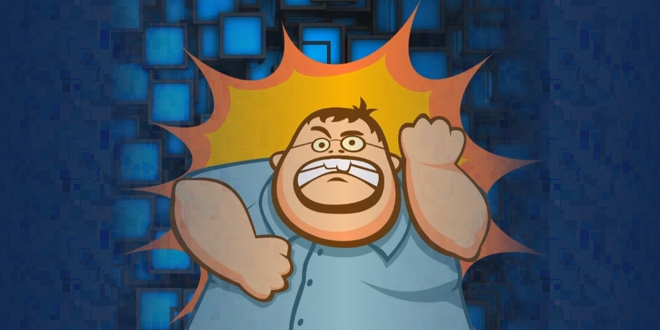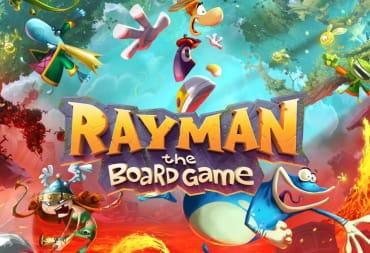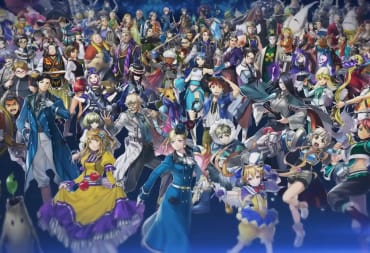I'm a fan of Boogie2988 and have been watching him for a while now. I fondly recall the time he was playing a survival game (H1Z1, I believe), made friends with a guy, and then comically shot him in the back while apologizing because he sorely needed the supplies to survive. (In a fit of irony, he ended up dying shortly thereafter anyway.)
Boogie2988 has always been vocal on topics that he's been passionate about over the years. However, he has faced a degree of vitriol over the years because of a position he has taken or simply because of who he is or how he looks. That said, Boogie2988 has been in the YouTube game for a long time and is rightly and deservedly respected by many for being an overwhelmingly kindhearted, fair, and just person.
Boogie2988 recently put out a video called "Boogie Speaks - Gaming Journalism" which I will provide below. This editorial is a direct response to the topics Boogie2988 addresses in that video. You will probably need to watch it to have the necessary context for my response, but there are certainly worse ways to spend your time. Give it a listen and then continue on past the embed.
https://www.youtube.com/watch?v=I0TGCUeUxxU To be fair to Boogie2988, it seems to me that when he talks about "Gaming Journalism" he is referring to the larger outlets such as Kotaku, Polygon, IGN, etc. And when he talks about YouTubers he is also probably talking about some of the larger people who do videos on YouTube for their livelihood.
Furthermore, I will quote portions of his video and respond to those portions. I'm mainly trying to respond to a few points of the entire product Boogie2988 has on display here; if I don't address something, then it can be safely assumed that I agree with it or (at the very least) take no issue with the statement.
Boogie2988 spends the first few minutes talking about how some people hold journalism to a high standard that may not necessarily be the case anymore. He states that, in essence, the Walter Cronkite era of "news that changes the world" ended the day CNN had to fill 24 hours of airtime. And on that point, I largely agree with Boogie2988.
Very early on in the video, Boogie2988 makes the following statement:
"The problem with gaming journalism is that at it's core it's almost impossible to be integral."
For the sake of clarity, I'm interpreting Boogie2988's use of "integral" here as meaning "to have integrity."
I somewhat agree with Boogie2988 here. Integrity, as it were, is not necessarily profitable. The cutthroat nature of the ad-based online medium makes clickbait almost a necessity if you want to survive. But I believe that you can make a quality product, put it out there, and make enough money to pay the bills. People like Boogie2988 who do just that are evidence of my belief in practice.
While a text-based website with multiple writers is different in a lot of ways, it still follows the same basic principle: if you make quality content, people will eventually find you. It may not be as rapidly as if you took every brand deal under the sun and did undisclosed advertisements at the end of the day, but I believe that it can be done or I wouldn't be writing here at TechRaptor. Hell, I have to believe it can be done, because if I don't then I'd have to consider anything made by anyone online wholly irredeemable and untrustworthy. And I just don't think it's all that bad. Not yet, anyway.
Boogie2988 goes on to talk about how the old guard of print magazine games journalism would simply regurgitate information provided to them by publishers. He speaks of having subscribed to Nintendo Power as a child and how there wasn't necessarily honest criticism of the products in there. I also subscribed to Nintendo Power—ever since Issue #2, in fact, until they met the most '90s fate possible when my Stretch Armstrong broke open and leaked all over the entirety of my collection.
And on this point, I would also have to agree with Boogie2988. The gaming press old guard had to play a very delicate game of providing accurate information to their readers while simultaneously avoiding the ire of the publishers who provided them the very content for their publication. That same problem extends to gaming journalism today.
Mostly.
"Publishers are very, very much in control over what is released and when it's released. And if you don't play ball with those corporations and do it pretty much exactly the way they want it done, they will blacklist you as we've seen Stephen Totillo talk about when it comes to Bethesda or Ubisoft. They're just simply going to keep you out of the loop and you won't get spoon-fed the information that is your product."
I have to be honest, I don't feel that this is the fairest example. It would be if Kotaku had simply criticized some points of failure in Bethesda's and Ubisoft's games. However, in my opinion they were less about criticism and more about being as deliberately inflammatory as they could possibly be. As an example, here is a former Call of Duty developer talking exactly about the some of the inflammatory type of journalism Kotaku has done over the years:
https://twitter.com/ChanceGlasco/status/667458383600099328 This is the article that Chance Glasco is referring to in the above tweet.
We can't know for sure, of course, but I would wager that Kotaku was blacklisted not insomuch for criticism as they were for the egregious way in which they wrote their articles. There is a world of difference between criticizing a game's actual faults and writing a headline like "Infinity Ward Hates Puppies."
If Kotaku scored a Bethesda game poorly and were blacklisted as a result, I think that their readership and the gaming world at large would be rather upset by that. As bad as Kotaku's content can be at times, it would still be a scummy move on Bethesda's part to pull out of the symbiotic developer/journalism relationship because a publication didn't treat the developer's product in the most favorable way possible. I just don't think game developers are that dumb.
And I've seen anecdotal evidence of this very phenomenon myself. I reviewed Hektor and didn't score it very favorably because I had some genuine issues with the game. It was very disappointing to me because in all honesty I wanted to like the game but I just couldn't. And the developer thanked me on Twitter.
https://twitter.com/felixnordanaker/status/660462181797011456https://twitter.com/felixnordanaker/status/660600949904293888
Boy, talk about a punch in the gut. On the one hand, I felt bad about talking poorly about some aspects of Hektor, but on the other hand I was tremendously relieved that I was able to be honest and that the developer was very understanding of it.
Boogie2988 goes on to talk about how the nature of the 24 hour news cycle means that "filler content" is a necessary evil. This is largely true and most publications and YouTube channels are guilty of it to one degree or another. It's not necessarily a bad thing to do a little high quality non-content every now and again (praise be to WOWCrendor) anyways so long as you don't have any ethical or moral breaches when you do it.
He then moves on to talk about how YouTubers have to be honest and have integrity in order to survive in the modern era and alludes that this is (or will be) the case with gaming journalism today. And again, on that point, I have to agree with him. I think what is colloquially known as "clickbait"—attention-getting, often misleading headlines—is a way to grow your YouTube channel or website in the short term. Ultimately, I am of the opinion that it hurts you in the long term, especially when it comes to reader loyalty. If your audience gets misled (one way or another) enough times, you'll no longer be in their good graces and that's a wrap.
Boogie2988 also brings up how advertising on YouTube is largely automated. Strictly speaking, it's not really possible for an advertiser to "blacklist" a YouTuber the same way a developer can cut off a gaming publication. And that's largely true; you can make a video called "Fallout 4 is really terrible" and have an ad for Fallout 4 run right before the video that trashes the very same game.
It's the same here for us, though. We really don't take much in the way of direct advertisement, and if we did I really do not believe that we would tread lightly around products by that advertiser. The proof is in the pudding; our CEO Rutledge Daugette regularly gets requests for sponsored articles that the requester does not want disclosed in any way and Rutledge turns every single one of them down (as he should). Anything sponsored on TechRaptor is clearly and prominently disclosed, and all of this is centered around our clear-cut ethics policy. And in the rare event that we do mess up, our readership is quick to call us out on it and we're quick to fix it.
That leads me to the next point I would like to talk about. There seems to be a growing movement that shifts more towards crowd-supported quality content which Boogie2988 talks about here:
You look at the folks over at Kinda Funny Games who worked for IGN and were part of the machine and [have] now re-invented the way they do it - deciding to become a crowd-funded, crowd-pleasing group of gamers who create incredible content... I think you're gonna see more and more and more of that - I hope, anyways - until these gaming journos either are out of a job or decide to change [their] tune.
Well, the tl;dr of TechRaptor's inception is that our CEO saw the games journalism wasn't very good and decided to make a site that put out quality content. And really, everything here is done with the mindset of quality over quantity from what I've seen in the year I've been here. It probably hurts us in the short term, I'm sure, but it will help us in the long term. I have a strong feeling that the short-term clickbait model is going to go down the drain as the readership becomes tired of these shenanigans. If you respect your audience, your audience will respect you.
I think an important thing to bring up is the idea of how sites like ours are funded. TechRaptor mainly gets its money from ad views, Patreon donations, and the occasional sponsored post.
When the idea of funding comes in, there is a shocking reality that may not necessarily be evident to the layman: a single dollar donated to us is worth many, many more page views from people simply viewing ads. Let's use a terrible hypothetical CPM Of $1 (Click Per Mille – the amount of money you're paid per 1,000 non-Adblocked views of a piece of content) as an example. CPMs are usually not allowed to be disclosed, but I think that most people who use advertisements on their website or work with YouTube would agree that $1/1,000 views isn't the most ideal rate.
If someone were to donate $1 to us that is effectively supplanting 1,000 views (at this terrible fictional CPM). The numbers can vary depending on the ad network and setup, but in short a dollar or two here and there from a portion of your audience can hold the entirety of an organization afloat.
This may be new to the online era, but this isn't a new concept to the world. I'm not talking subscriptions, either, because paywalling content can be disasterous. I'm talking about the support of a portion of your audience. PBS and NPR in America have essentially used this exact model (along with, to be fair, a goodly chunk of government funding) to make content that is not necessarily profitable to make.
And while making good, ethical, and interesting games journalism may not necessarily be profitable in a purely ad-based model, I can certainly sleep well at night knowing that I still have my integrity. I really do enjoy writing here (and writing in general), and people like Boogie2988 lend credence to my belief that if you work hard and put out quality content, people will be willing to kick a few bucks your way to keep the lights on.
The hard part, to me, doesn't seem to be keeping your audience insomuch as building it in the first place. The Internet has no loyalty; if a forum goes down people will go to a new one. You have to be able to provide something they can't really get anywhere else. And as YouTube's CPMs seem to be floating dangerously low at times over the last year, quite a few YouTubers (Boogie2988 included) have launched Patreons to get direct support from their audience in order to diversify their incomes. The fact that they have been as successful as they are in this regard speaks to their quality.
I know that [gaming journalists] can get it right. And I really hope that they choose to.
Ultimately, although Boogie2988 is critical of some of gaming journalism's much larger sites (and rightly so in many respects) he is presenting an overall message of hopefulness and positivity. And if there's one thing you can be assured of getting from Boogie2988, it's hopefulness and positivity (along with a dash of unconditional kindness). I may disagree on some of the finer points or a bit of semantics here or there I ultimately feel the same way that Boogie2988 feels. If you take your time making quality content and respecting your audience you will build the kind of loyalty from that audience that money simply cannot buy. Boogie2988 is evidence of that and it's something I work towards with every word I write.
What did you think of Boogie2988's video? What are your thoughts on my response? Do you disagree with any of my points? Let me know in the comments below!
Have a tip, or want to point out something we missed? Leave a Comment or e-mail us at tips@techraptor.net












